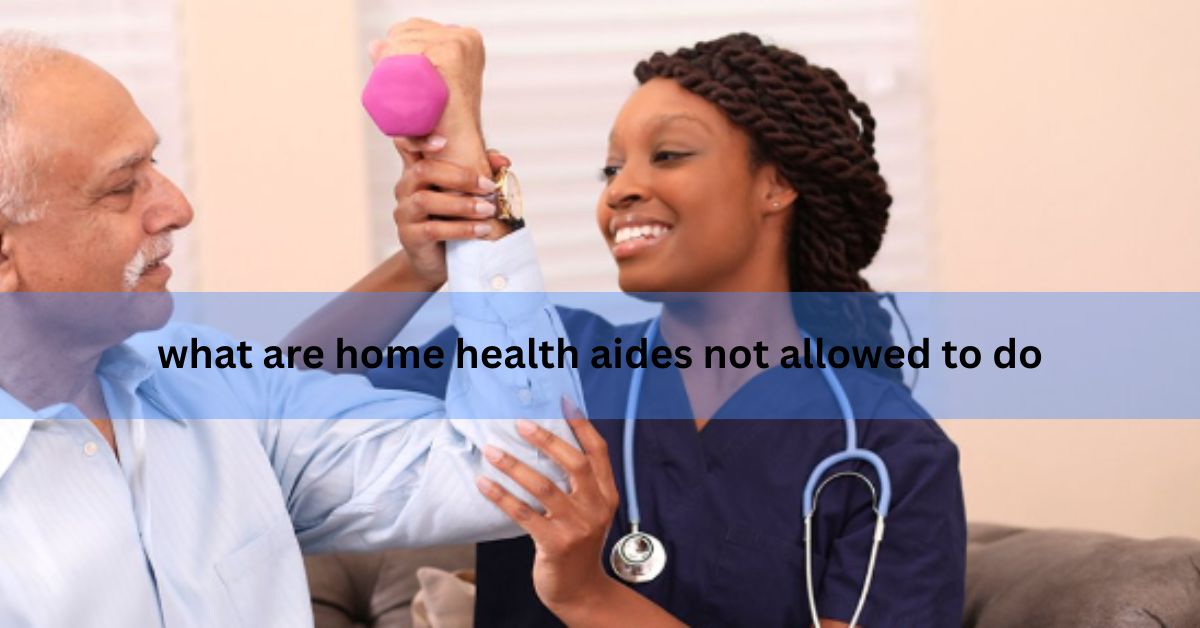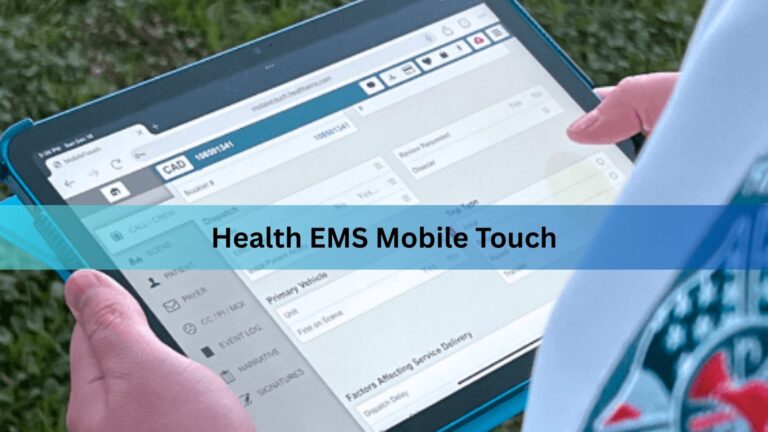What Are Home Health Aides Not Allowed To Do – Know Hha Job Limits!
In the growing field of home healthcare, home health aides (HHAs) play an essential role in supporting patients with daily living activities and providing basic healthcare support. However, there are strict limitations on what they are permitted to do. Understanding these boundaries is vital for patients, families, caregivers, and even the aides themselves to ensure legal compliance, safety, and the highest standard of care.
In this comprehensive guide, we explore what home health aides are not allowed to do, why these restrictions exist, and the potential legal and safety consequences of crossing these lines.
Overview: The Role of Home Health Aides
Home health aides provide non-medical support and assist clients in their homes with tasks that promote comfort, independence, and basic health maintenance. Their responsibilities typically include:
- Assisting with personal hygiene (bathing, grooming, dressing)
- Helping with mobility and transferring
- Light housekeeping
- Preparing meals and assisting with feeding
- Monitoring vital signs (in some states)
- Reminding clients to take medications (not administering)
While these services are critical for many patients, there are clear boundaries regarding the medical care and advanced tasks HHAs can perform.
What Home Health Aides Are Allowed to Do?

Personal Care Assistance
Home health aides are permitted to assist with personal hygiene tasks that help clients maintain their dignity and comfort. These include:
- Bathing and grooming
- Skin care (non-medicated lotions)
- Oral hygiene assistance
- Dressing support
Activities of Daily Living (ADLs)
Helping with activities of daily living is a core part of an HHA’s role, such as:
- Helping clients move from bed to chair
- Light exercises and mobility support
- Assistance with eating and drinking
Household Tasks
While HHAs are not housekeepers, they do provide light housekeeping services to support the client’s wellbeing, including:
- Light housekeeping
- Laundry
- Preparing nutritious meals
- Running errands (if part of job description)
Medication Reminders
Though they cannot administer medication, HHAs can:
- Remind clients to take medications that are pre-measured and prescribed
- Report any refusal or side effects to supervisors
Monitoring and Reporting
HHAs serve as the eyes and ears of medical professionals by:
- Observing changes in condition
- Reporting vital signs or symptoms to licensed professionals
What Are Home Health Aides Not Allowed to Do?
Administering Medications
HHAs are strictly prohibited from performing any task related to directly administering medications. This includes:
- Giving injections
- Mixing or preparing medications
- Adjusting dosage or timing
Performing Medical Procedures
Medical procedures are outside the scope of practice for HHAs. They cannot:
- Insert or remove catheters
- Change sterile wound dressings
- Conduct invasive procedures
Diagnosing or Assessing Medical Conditions
Only licensed medical professionals can diagnose or assess conditions. HHAs:
- Cannot diagnose new medical conditions
- Cannot assess severity of symptoms (only report them)
Handling Prescriptions and Medical Equipment
HHAs cannot:
- Fill prescriptions
- Operate complex medical equipment like ventilators
- Administer oxygen without proper training and supervision
Making Medical Judgments
Medical decision-making is reserved for physicians and nurses. HHAs:
- Cannot make decisions about medical care
- Cannot alter care plans without physician or nurse input
Providing Physical or Occupational Therapy
HHAs are not trained therapists. They:
- Cannot initiate, adjust, or modify therapy programs
- Cannot provide therapeutic massages or medical exercises
Invasive Wound Care
Wound care involving surgical sites or infections must be handled by professionals. HHAs:
- Cannot handle surgical wounds or pressure ulcers
- Cannot perform debridement or specialized wound care
Financial Management and Legal Tasks
Financial and legal responsibilities are not part of an HHA’s role. They:
- Cannot manage client finances
- Cannot sign legal documents on behalf of the client
- Cannot handle banking or bill payments unless under separate legal agreement
Also Read: Is Gin Good for Health – A Comprehensive Look at the Evidence!
Why Are These Tasks Prohibited?
Legal Protection and Compliance
State and federal regulations, such as Medicare and Medicaid guidelines, clearly define the scope of HHA duties. These laws protect both the patients and aides by ensuring that only trained professionals perform medical tasks.
Patient Safety
Medical errors can have serious consequences. Limiting HHAs to non-medical tasks prevents unnecessary risks to patient health and wellbeing.
Professional Boundaries
Clear professional roles ensure that every member of a healthcare team works within their qualifications and expertise. This avoids confusion, reduces liability, and ensures high-quality care.
Legal Implications of Performing Prohibited Tasks:

State Regulations
Every U.S. state has specific laws regarding HHA duties. Violations may result in:
- License revocation (if applicable)
- Fines
- Legal charges for practicing without a license
- Employment termination
Employer Liability
Employers are responsible for their staff. Allowing HHAs to exceed their scope of practice could result in lawsuits, regulatory penalties, or even closure of the business.
Patient Harm and Malpractice
Improper care may cause serious patient harm, opening the door to malpractice lawsuits and criminal charges in severe cases.
Professional Consequences for Home Health Aides:
- Loss of Employment: Immediate termination of job contracts.
- Loss of Certification: Revocation or denial of future certification.
- Legal Charges: Possible civil or criminal penalties.
- Future Employment Restrictions: Permanent record affecting healthcare career prospects.
The Importance of Clear Communication in Home Health Care:
Role of Supervisors and Licensed Professionals
Clear guidelines provided by supervising nurses or doctors ensure that HHAs stay within their scope and know when to seek help or escalate concerns.
Training and Continuing Education
Regular training sessions help HHAs remain up to date with legal regulations, safety protocols, and best practices in patient care.
How Families and Patients Can Protect Themselves?
- Understand Your Rights: Patients and families should know what aides can legally do.
- Clarify Roles: Ensure job responsibilities are clearly defined and understood.
- Monitor Care: Family members should check in regularly.
- Report Concerns: Any suspicious activity should be reported to the healthcare agency or state regulatory body.
FAQ’s:
1. Can home health aides administer insulin shots?
No, only licensed medical professionals like RNs or LPNs can administer injections, including insulin.
2. Are HHAs allowed to change wound dressings?
Only non-sterile dressing changes may be permitted; sterile dressing changes must be done by licensed professionals.
3. Can HHAs give medications if the patient forgets?
HHAs may remind clients to take pre-measured medication but cannot administer or alter dosage.
4. Can a home health aide manage IV therapy?
No, IV management is outside their scope of practice and must be done by trained professionals.
5. Are aides allowed to handle patient finances?
No. Unless they have separate legal authorization, financial tasks are not part of their job.
6. Can HHAs perform CPR or use an AED?
If certified, they may provide CPR or use an AED in emergencies but not as routine care.
7. Can home health aides give medical advice?
No, they cannot offer any form of medical advice or diagnosis.
8. Is assisting with oxygen therapy allowed?
Only if trained and under supervision, and even then, not adjusting oxygen flow settings.
9. Can HHAs help with catheters?
They may assist with positioning and comfort but cannot insert or remove catheters.
10. Who regulates the duties of home health aides?
State licensing boards, Medicare/Medicaid, and federal agencies oversee regulations for HHAs.
Closing Remarks:
Home health aides play a critical and compassionate role in the healthcare ecosystem. However, understanding the limitations of their duties is essential for legal, professional, and patient safety reasons. Families, patients, and aides must work together with healthcare professionals to ensure every patient receives the highest quality of care while staying within appropriate legal boundaries.
Read More:






